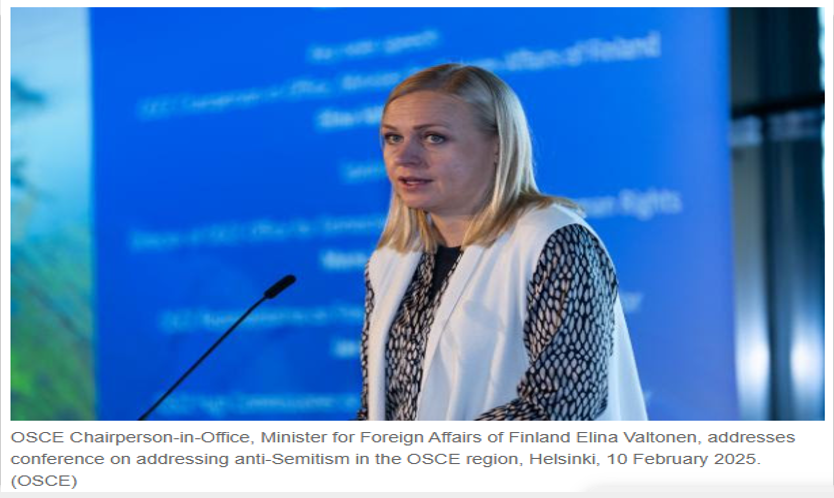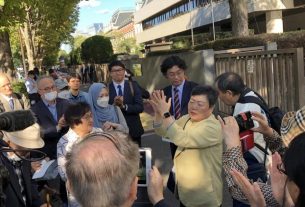HELSINKI, 10 February 2025 – This week, representatives from governments, civil society, Jewish communities, and experts across the OSCE region have gathered in Helsinki for the Annual Conference on Addressing Anti-Semitism. The event focuses on strengthening efforts to combat anti-Semitism and other forms of intolerance while fostering inclusivity and tolerance in societies.
In her opening speech, Elina Valtonen, Chairperson-in-Office of the OSCE and Minister for Foreign Affairs of Finland, emphasized the gravity of the issue, marking the 80th anniversary of the liberation of Auschwitz-Birkenau. She urged participants to honor the Holocaust’s victims, noting that as living memory fades, it is the responsibility of current generations to ensure such atrocities are never repeated.
“We must all do our part to build tolerant, open, and inclusive societies, ensuring that future generations can live free from hatred,” said Valtonen.
The conference is especially significant given the ongoing resurgence of anti-Semitism in the OSCE region. Anti-Semitic sentiment continues to undermine democratic values and disrupt social cohesion. The OSCE has long recognized anti-Semitism as a threat to regional stability and security, with its 2014 Basel Declaration serving as a foundational commitment against this form of hate.
Maria Telalian, Director of the OSCE Office for Democratic Institutions and Human Rights (ODIHR), reflected on the deeply rooted nature of anti-Semitism, noting that the Holocaust’s atrocities were fueled by exclusionary ideologies. However, she also highlighted the power of interfaith dialogue and awareness-raising efforts to combat prejudice and foster understanding across communities.
Key topics at this year’s conference include emerging challenges, such as the role of artificial intelligence and new technologies in perpetuating hate speech, as well as the importance of education in combating bigotry.
Participants emphasized that combating anti-Semitism requires more than just words—it demands comprehensive action and collaboration across governments, civil society, faith communities, media, and international organizations. It’s a collective effort to ensure OSCE principles of human rights, freedom, and tolerance are upheld.
Rabbi Andrew Baker, the OSCE Chairperson-in-Office’s Personal Representative on Combating Anti-Semitism, noted the progress made over the past two decades in countering hate crimes, enhancing security measures for Jewish centers, and developing national strategies to address anti-Semitism. Despite these strides, however, Jews across the OSCE region continue to experience the threat of anti-Semitism, which impacts their daily lives and security.
As the 2025 Chair of the OSCE, Finland is committed to addressing anti-Semitism and all forms of discrimination and intolerance. This conference marks an important opportunity to reflect on the progress made and to set a clear path forward in ensuring a more tolerant, inclusive, and secure region for everyone.



